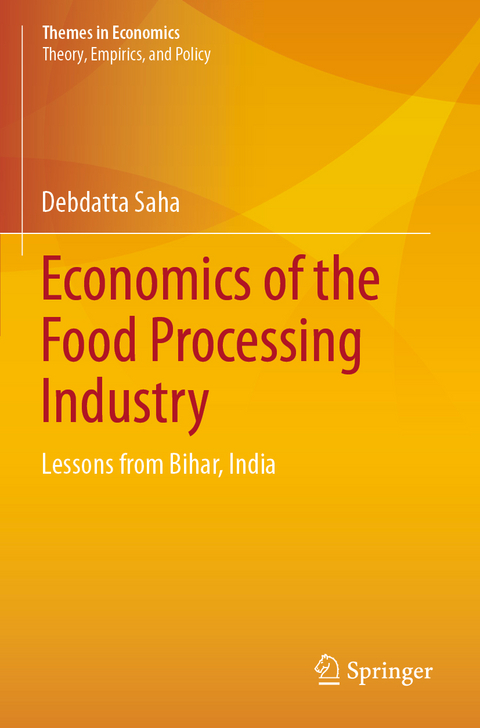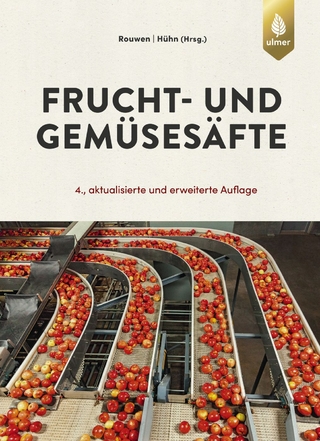
Economics of the Food Processing Industry
Springer Verlag, Singapore
978-981-13-8556-8 (ISBN)
Moreover, the supply-side narrative presented here identifies two types of costs: physical and non-physical costs of operation. For trajectories with skewed firm sizes (“missing middle”) and missing markets, which can be found in Bihar, the latter costs matter just as much as the former in terms of entrepreneurship. While efficiency in operations is studied for selected sub-sectors in Bihar’s food processing to assess the main sources of inefficiency in minimizing the physical costs of operations, non-physical costs are studied using the construct of region-based counterfactual thinking (rCFT) and its relationship with the perception of risk for entrepreneurs. rCFT offers a new concept for understanding the mindset of the entrepreneur, in which the regional identity plays a significant role.
The empirical content is based on a primary survey of food processing in Bihar. Additional policy questions, such as the choice between spatial collocation of food parks or cluster-based development of unique sub-sectors, are explored through an analysis of the policy network that supports entrepreneurship. Issues arising from the government’s policy choices, particularly vertically targeted industrial policies, can influence industrial outcomes and are particularly relevant for regions like Bihar. While policy evaluation for Bihar’s processed food industry yields insights on policy targeting for decision-makers in the government, examples of parallel narratives from global experiences in comparable regions shed new light on industrial development in processed food, which should be of interest to business practitioners, academic researchers and policymakers alike.
Debdatta Saha is an Assistant Professor at the Faculty of Economics, South Asian University (SAU), India. Having worked as an economist at a leading public policy think-tank and as a competition regulator in India (Competition Commission of India) prior to her appointment at SAU, she has an abiding interest in issues concerning industrial structure, competition and public policy; industrial policy in particular. Her doctoral research at the Indian Statistical Institute, New Delhi on applied game theory in industrial organization gave her valuable insights into the micro-foundation of market structures and industrial outcomes. She has presented her work on industrial policies on various international platforms, and is currently collaborating with the UN Environment Programme (UNEP) to design lecture modules on Green Industrial Policy. This book is the outcome of her analysis of Bihar’s food processing industry in the context of an IGC-sponsored project (with Barna Ganguli, ADRI, Bihar as co-investigator) that explored the drivers of industrial growth for a state with a low industrial base using a lead sector: food processing.
Introduction.- Chapter-1: Sub-sectoral snapshots.- Chapter-2: Entrepreneurial Risk Perceptions.- Chapter-3: Policy Analysis.- Chapter-4: Brand Bihar in Food Processing.- Bibliography.
| Erscheinungsdatum | 01.04.2021 |
|---|---|
| Reihe/Serie | Themes in Economics |
| Zusatzinfo | 14 Illustrations, color; 16 Illustrations, black and white; XVI, 262 p. 30 illus., 14 illus. in color. |
| Verlagsort | Singapore |
| Sprache | englisch |
| Maße | 155 x 235 mm |
| Themenwelt | Technik ► Lebensmitteltechnologie |
| Wirtschaft | |
| Weitere Fachgebiete ► Land- / Forstwirtschaft / Fischerei | |
| Schlagworte | Agri-resources • Applied Industrial Organization • Bihar Food Processing Industry • COMFED • Food Park • Food Processing |
| ISBN-10 | 981-13-8556-4 / 9811385564 |
| ISBN-13 | 978-981-13-8556-8 / 9789811385568 |
| Zustand | Neuware |
| Haben Sie eine Frage zum Produkt? |
aus dem Bereich


